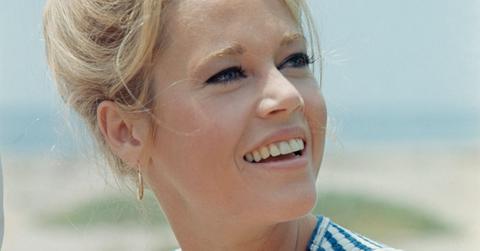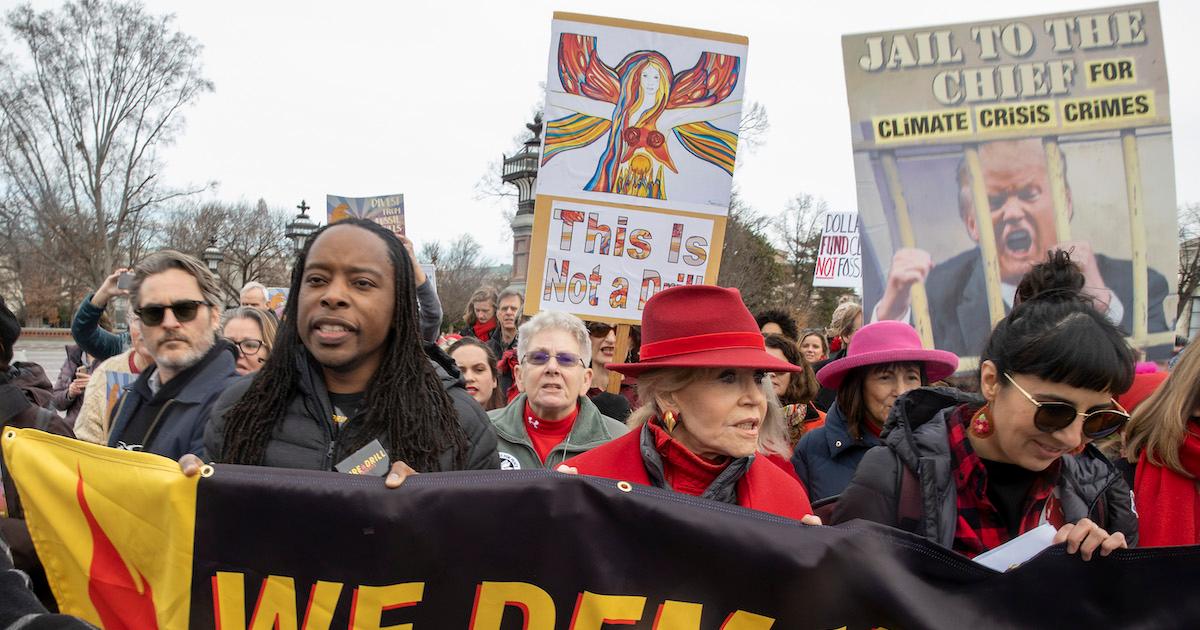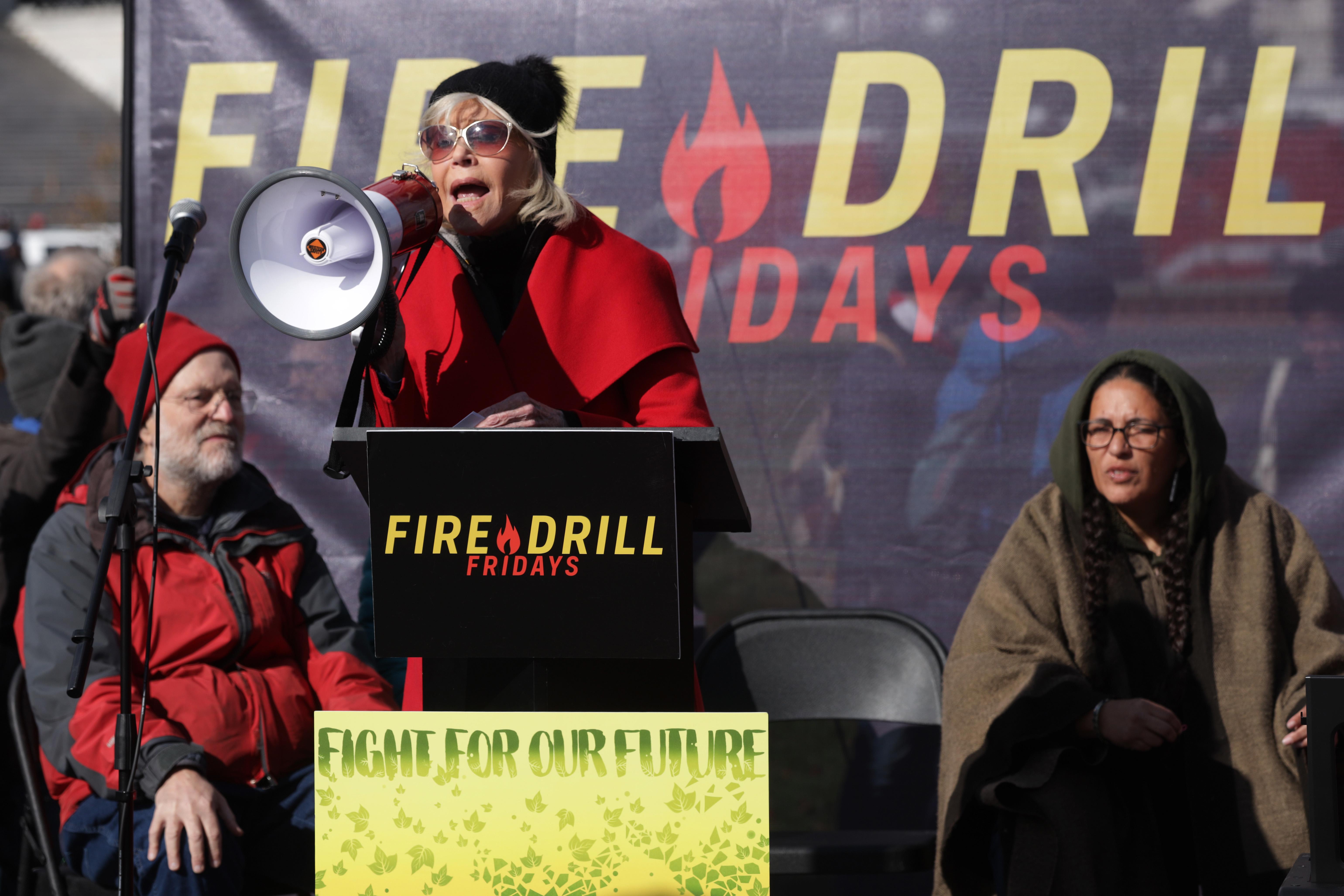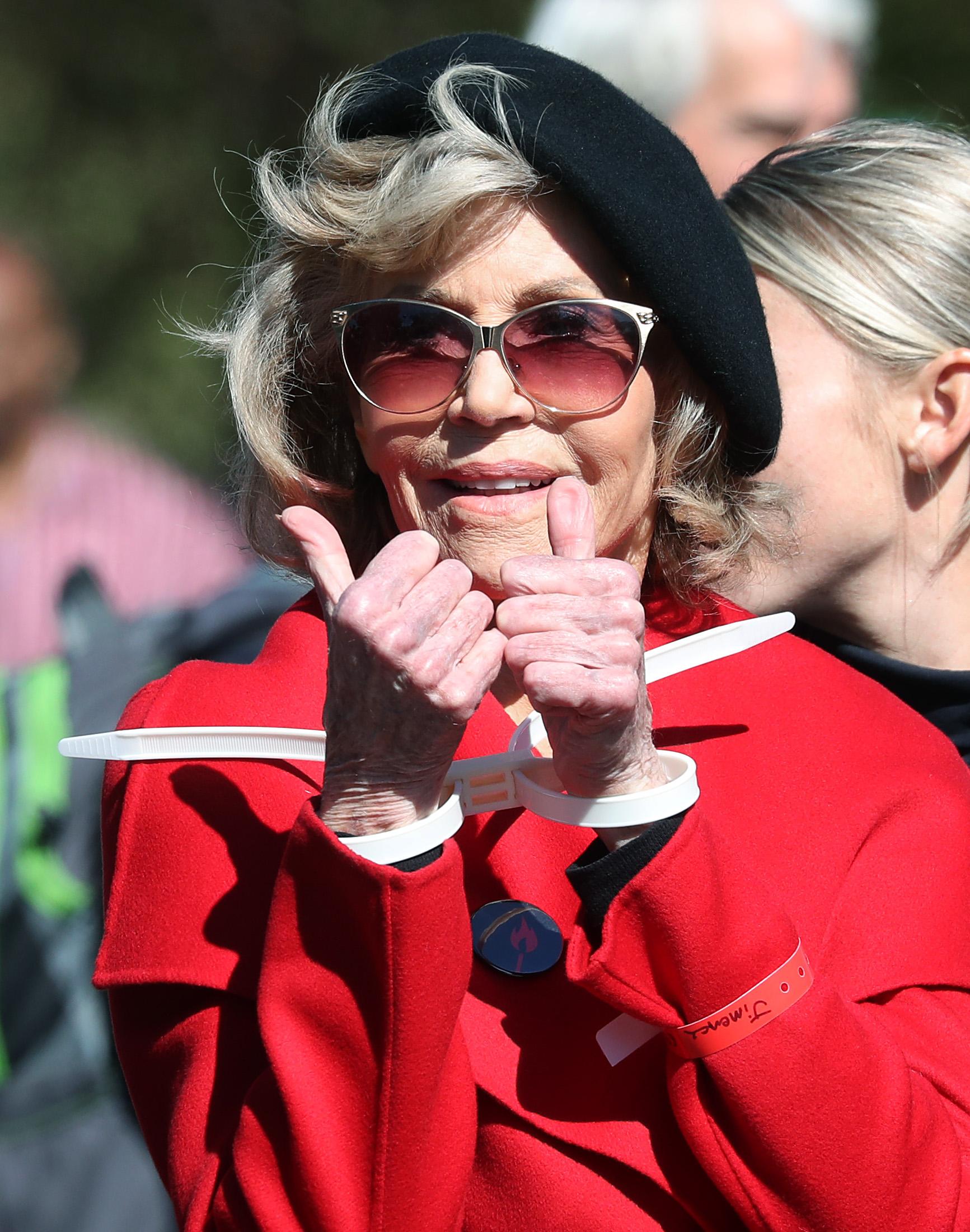Jane Fonda's History of Social and Environmental Activism
Updated Jan. 13 2023, 4:30 p.m. ET

Actress Jane Fonda is known for her roles in Youth, Coming Home, 9 to 5, and Grace and Frankie, but she has also become equally famous for her role as an activist. Fonda notoriously opposed the Vietnam War in the late 1960s and early ‘70s, championed women’s rights, protested the Dakota Access Pipeline in Standing Rock a few years back, and most recently, traveled to Minnesota to publicly oppose Line 3 tar sands pipeline project.
As the octogenarian actress and activist says in HBO's documentary, Jane Fonda in Five Acts, “You have to have the courage to speak about the changes that are needed and that includes challenging at the root the corporate power that has taken over the economy of this country.”
Keep reading for an in-depth history of Jane Fonda’s activism.
What to know about Fonda's role in environmental activism:

In October 2019, Fonda launched a weekly protest in collaboration with Greenpeace called Fire Drill Fridays after becoming inspired by Greta Thunberg and other young activists demanding a more aggressive governmental response to climate change. Fire Drill Fridays protestors would gather outside the U.S. Capitol in an attempt to raise awareness of the worsening climate crisis and also demand that the U.S. use alternatives to fossil fuel as per the Green New Deal.
On her 82nd birthday, Fonda was arrested while protesting at a Fire Drill Friday outside the U.S. Capitol. Later, in her book What Can I Do? My Path From Climate Despair to Action, Fonda called her arrest the “best birthday party ever.”

Fonda has also protested various pipelines, including the Dakota Access Pipeline in 2016 at Standing Rock. Fonda was campaigning for the social rights of Native Americans as much as opposing the environmental impacts a pipeline, including fatality to wildlife and contamination of water, would have on the area.
In 2020, Fonda stood in solidarity with Indigenous people in opposition of Line 3, a pipeline proposed by Enbridge in 2014, a Canadian pipeline company responsible for one of the biggest oil spills in the U.S., according to StopLine3.org.
What to know about Fonda's social activism:

Fonda’s activism began in advocating for social justice. Fonda explains in Jane Fonda in Five Acts that she was pregnant with her first child in France in 1968 when she first became inspired, after watching various news programs on the Tet Offensive and civil demonstrations in Chicago. Fonda suddenly felt inspired to move back to the U.S., saying in the documentary, “I want[ed] to be with my people in my country and try to make this right.”
After returning to the U.S., Fonda first made headlines for her public opposition of the Vietnam War, speaking out against the Mỹ Lai massacre, the mass murder of unarmed civilians in the village of Sơn Mỹ in Vietnam by U.S. troops. In a very public address, Fonda appealed to soldiers’ heartstrings – though at the time her speech was criticized as begging soldiers to disobey orders – saying, “If they told you the truth of what your targets really are, you wouldn’t fight, you wouldn’t kill."
At the time, Fonda’s vocal opposition of the Vietnam War and her support of the Black Panthers drew the FBI to place surveillance on Fonda and her family.
Fonda also spoke up regarding social issues that pertained to Native American communities. In 1970, Fonda traveled to Seattle to help a Native group to bargain for their rights in the retaking of Fort Lawton, and visited Native American revolutionaries in prison after they were arrested to show her full support.
Aside from showing up in solidarity with various social issues in her personal life as an activist, Fonda also worked social activism into her acting. The China Syndrome was about a nuclear power plant, and 9 to 5 worked to close the wage gap. Even the Jane Fonda Workout video was created with the intention to fund the Campaign for Economic Democracy, tying most of her work to relative social issues at the time.
Jane Fonda's past controversies:
Activism always comes a fair share of controversy. Fonda’s most notorious controversy came during her 1972 tour of North Vietnam. There in Hanoi, Fonda was photographed sitting on an anti-aircraft gun, which inspired many Americans – even some legislators – to call for Fonda to be charged with treason. The photo was seen by many Americans as treasonous and disrespectful to veterans and active military members. To that end, Fonda has publicly apologized, almost relentlessly, for the photo.
Previously, in 1970, Fonda was arrested after giving a speech at a college in Canada and reentering the U.S. in Cleveland. Fonda’s bags were seized at the airport and she was held on suspicion of drug smuggling. The pills in her bag ended up being nothing more than daily vitamins, but Jane Fonda's mugshot that came as a result of that arrest has since become a universal symbol for rabble-rousers everywhere.
This article, originally published on April 6, 2021, has been updated.